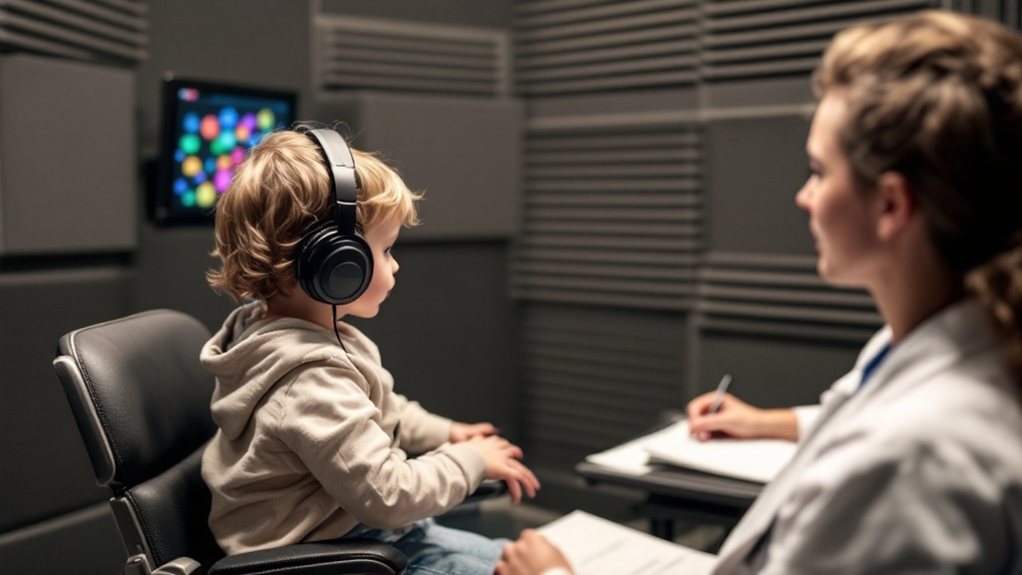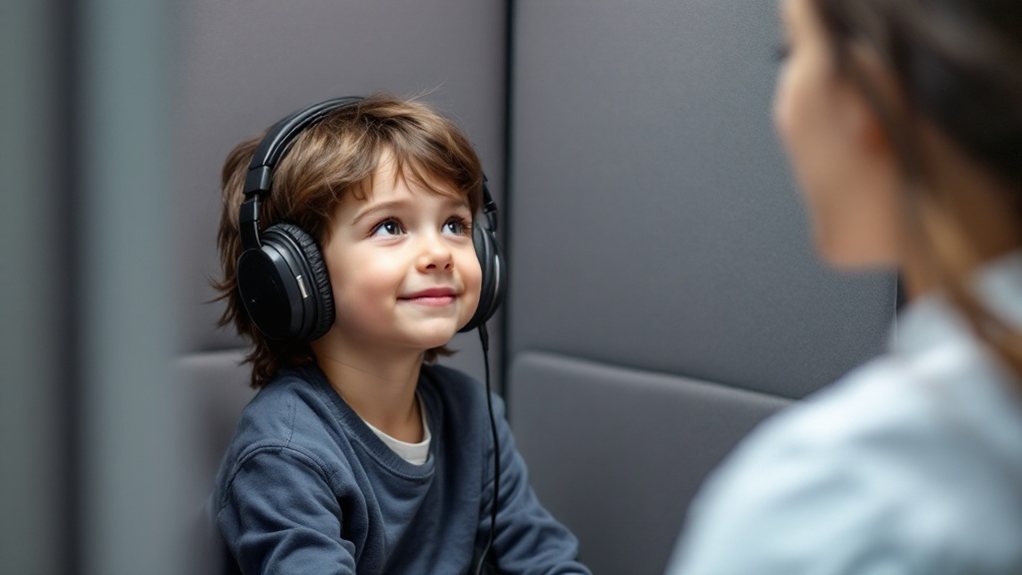Are you looking for Children Hearing in Browns Plains?
Ready to take the first step towards better hearing?
Let’s talk!
Connect with us today! Fill out the contact form below to schedule your personalised hearing consultation at All Things Hearing. Our expert team is committed to guiding you on your journey to improved hearing health. Don't wait to enhance your quality of life. Reach out now – we're here to listen and help!
Follow us:
Our main hearing clinic is located in Greenbank and our visiting sites are located in Daisy Hill, Jimboomba, Parkinson, and Wishart.
All Things Hearing provides hearing services in this area, and we recommend that you have your child's hearing tested regularly, as it's crucial for their speech and language development. You won't want to miss potential issues that can arise from common illnesses like ear infections.
It's likely you're not aware that even mild hearing loss can cause delays. You'll want to know the symptoms to look out for, like lack of response to sounds.
As you explore further with All Things Hearing, you'll find out more about the types of tests and treatment options available to help your child's hearing stay healthy. You're about to discover what you can do next.
Hearing Test Importance

As you're considering your child's health, it's worth noting that hearing tests are crucial in terms of identifying potential issues early on. You'll want to catch any problems before they affect your child's development. Hearing tests can help you do just that. If you don't get your child's hearing tested, you won't know if they're having trouble hearing, which can lead to delays in speech and language skills.
You should have your child's hearing tested regularly, especially if you've noticed any signs of hearing loss. It's also important to get their hearing tested after an ear infection or other illness that could affect their hearing. Don't wait until it's too late – schedule a hearing test for your child today. You'll be glad you did, as it'll give you peace of mind knowing your child can hear properly. Regular hearing tests will help ensure your child's hearing stays healthy.
Causes Of Hearing Loss
Several factors can contribute to hearing loss in children, and it's essential to understand what they are so you can take preventive measures. You should know that genetics can play a role, and if there's a family history of hearing loss, you'll want to monitor your child's hearing closely. Infections like meningitis, measles, or ear infections can also cause hearing loss, so it's crucial to get your child treated promptly if they contract one of these illnesses.
You'll also want to be aware of potential environmental factors that can contribute to hearing loss, such as exposure to loud noises. If you're attending a concert or fireworks display with your child, it's a good idea to bring ear protection to prevent damage to their ears. Additionally, certain medications can cause hearing loss, so you should discuss any potential risks with your child's doctor before administering them. By understanding these causes, you can take steps to protect your child's hearing.
Symptoms To Look For

During the early stages of hearing loss, it's crucial you're able to identify the symptoms in your child. You should look out for signs that they're having trouble hearing, such as not responding to their name or other sounds. If your child can't hear well, they might lean in close to you when you're talking or turn up the volume on their toys.
You should also pay attention to your child's speech development. If they're not hearing well, they might have trouble pronouncing words or understanding what you're saying. They might also have trouble following instructions or keeping up with conversations. It's essential you're aware of these symptoms, so you can take action early on. You shouldn't delay, as early detection and treatment can make a significant difference in your child's ability to hear and communicate effectively. If you notice any of these symptoms, you should consult a doctor or an audiologist.
Types Of Hearing Tests
You've identified the symptoms of hearing loss in your child, now it's time to consider what's involved in confirming a diagnosis. You'll find that there are several types of hearing tests that can help determine the extent of your child's hearing loss. These tests are designed to assess different aspects of hearing, such as sound detection, speech recognition, and ear function.
You can expect your child to undergo tests like pure-tone audiometry, which checks their ability to detect sounds of different frequencies. Tympanometry and otoacoustic emission testing are also common, as they evaluate the middle ear's function and the cochlea's ability to detect sound. Additionally, speech audiometry and auditory brainstem response testing may be used to assess your child's speech recognition and the nervous system's response to sound. These tests will help you understand your child's hearing loss and guide the development of an effective treatment plan.
Hearing Test Procedures

The audiologist's office is where your child's hearing test will take place, and it's likely to be equipped with specialized equipment, such as a soundproof booth. You'll be asked to fill out a form with your child's medical history, and the audiologist will review it before the test. The audiologist will then explain the test procedure to you and your child, and answer any questions you may have.
During the test, your child will be asked to respond to different sounds, such as tones or speech, and the audiologist will measure their response. You may be allowed to accompany your child during the test, or you may be asked to wait outside. The test itself is usually quick and painless, and it won't cause your child any discomfort. The audiologist will use the test results to determine the extent of your child's hearing loss, if any, and you'll receive the results immediately after the test. You'll then be able to discuss the results with the audiologist and determine the next steps.
Treatment Options Available
Several treatment options are available for children with hearing loss, and what's right for your child will depend on their specific condition. You'll work with your child's doctor to determine the best course of action. If your child has a mild hearing loss, they might not need any treatment at all. In some cases, you can help your child by reducing background noise or sitting them closer to the speaker.
For more severe hearing loss, your child may need hearing aids or other devices to improve their hearing. You should consider the pros and cons of each option carefully. Some children might be candidates for cochlear implants, which can greatly improve their ability to hear and understand speech. It's essential to follow your doctor's recommendations and attend all scheduled follow-up appointments to ensure your child's treatment is working effectively. You should also ask questions and seek a second opinion if you're unsure about any aspect of your child's treatment.
Disclaimer
The content on our site is purely for education and should not be seen as an endorsement or recommendation of any treatments or products without a thorough hearing assessment and evaluation. Before starting any treatment, users should get advice from a professional and be fully aware of any potential side effects or risks related to the procedures. Any products we mention cannot be purchased by the public without first consulting a hearing health expert.
